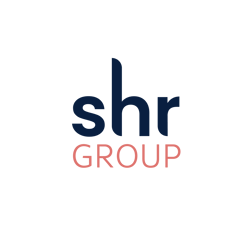
by Jason Q. Freed
Even before COVID-19 and the subsequent travel lockdown, revenue management – both strategy and systems – were in the midst of an evolution. As compared to a decade ago, revenue departments today manage much more than just pricing – they often oversee data analytics, distribution strategy and technology integrations.
Now, the current demand environment has shed more light on the fact that Revenue Management Systems must evolve. Systems that rely solely on historical data have become irrelevant in an environment where many hotels are starting from zero demand.
At SHR, which introduced its Wave RMS in May 2019, it was clear to leaders that while demand and revenue forecasts must now rely on forward-looking data more than ever before, the current processes simply weren’t providing hoteliers enough accurate information. So they dug into the algorithm, ran some data analysis and determined the best ways to provide more accurate forecasts that account for the dynamic nature of recovering demand in each market.
We caught up with David Moneo, VP of AI Initiatives, and Jordi Gallego, director of operations in Europe, to discuss what led them to dig in and what changes they made to Wave to provide more accurate recommendations.
Q: How accurate are traditional demand forecasts in the current market?
Gallego: We’ve been hearing from our hotel partners that forecasts based on historical data have become irrelevant in the current environment, and to be honest our forecasting models were indicating that we needed to make some changes. So we dug in and analyzed a bunch of data sets to determine which metrics would help us provide the most accurate forecast, and therefore the most optimal rate across various channels.
Q: How has the pandemic forced hoteliers to focus on forward-looking data vs. historical?
Gallego: Forward-looking data had become more accessible over the years even before COVID thanks to hotel partners sharing on-the-books data and the ability to import things like competitor benchmarking data and web-shopping data. These data sets allow us to get a better vision into unconstrained demand. I think it unfortunately took this pandemic for revenue leaders across the industry to truly realize the importance of forward-looking data as historical data has little value when you’re basically starting over from no demand, as we’re seeing in many cases.
Nicole Adair, Director of Revenue Management Services, talks about the changes in Wave RMS brought on by forecasting challenges amid travel's fallout from COVID-19.
Q: What made you take a closer look at Wave’s algorithm? What did you tweak?
Moneo: First, it was clear to us that historical data was not best serving our users and we needed to weigh pricing recommendations on a more accurate, forward-looking forecast. It also became clear early on the dynamic nature of the market – that the pace of bookings will depend largely on market recovery. So we implemented new parameters into our pricing algorithm that help choose the right forecast modeling. For example, for the near future where historical data has less relevance, models that have less dependence on historical will be used, while for dates further out, models that give more importance to the behavior of historical information will be selected.
The selection of the models is done automatically by the algorithm, maximizing the real-time accuracy.
Gallego: We also realized coronavirus is affecting individual markets vastly different and that some hotels will see a quicker rebound than others. For this reason, we’ve begun pulling COVID-19 health data by market from external sources and using it as a demand indicator in many cases.
Q: What are the additional data points the algorithm is now taking into account?
Moneo: As we analyzed the early recovering demand data from our partners, we realized the dramatic differences in demand for hotels located in markets that were severely affected by COVID-19 versus markets that were less affected. We knew it would benefit hotels to have their local market data available when making pricing and business decisions. So one of the main data sources we have incorporated is an API integration to collect market-level data on coronavirus-related illnesses, deaths and recoveries.
In late 2019, some industry leaders suggested the hotel revenue management industry was in a “rut” – that there was a lot of innovation on the shelf that was taking too long to come to fruition. Perhaps it took a crisis to kick-start experimentation, but SHR leadership is confident that hotels will continue using accurate data to better understand upcoming demand and make more profitable decisions across the entire organization.
For helpful resources visit our COVID-19 Help Page.


